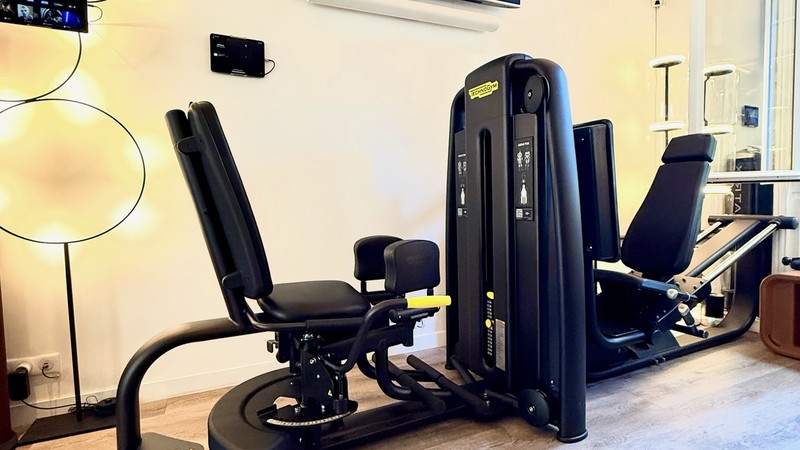Boost Your Digestive Health Through Exercise: The Power of Physical Activity
Maintaining a healthy digestive system is crucial for overall well-being. While diet and hydration are often highlighted as key factors, the role of regular physical activity in promoting digestive health is equally important. Exercise can significantly impact how efficiently your digestive system functions, aiding in everything from better nutrient absorption to preventing common digestive issues such as constipation and bloating. In this blog, we’ll explore how incorporating regular physical activity into your routine can improve your digestive health and provide tips on the best types of exercises for this purpose.

How Exercise Benefits Digestive Health
1. Enhancing Gut Motility
One of the most immediate benefits of exercise on the digestive system is improved gut motility. Physical activity stimulates the natural contractions of the intestinal muscles, helping to move food through the digestive tract more efficiently. This can prevent issues such as constipation and bloating. A study published in the American Journal of Gastroenterology found that even moderate exercise can significantly increase the time it takes for food to move through the colon, reducing the risk of constipation (American Journal of Gastroenterology).
2. Reducing Bloating and Gas
Bloating and gas can be uncomfortable and often result from slow digestion or the buildup of gas in the intestines. Regular exercise helps to alleviate these symptoms by speeding up digestion and encouraging the release of gas from the digestive tract. Engaging in activities like walking or yoga can be particularly effective in reducing bloating and promoting digestive comfort.
3.Managing Stress and Its Impact on Digestion
Stress is known to negatively impact the digestive system, leading to issues such as irritable bowel syndrome (IBS), acid reflux, and other gastrointestinal problems. Exercise is a powerful stress-relief tool, reducing levels of stress hormones like cortisol and promoting the release of endorphins, which enhance mood and relaxation. By managing stress through regular physical activity, you can help mitigate its adverse effects on your digestive health.

Best Types of Exercise for Digestive Health
Walking
Walking is one of the simplest and most effective forms of exercise for improving digestion. It encourages the movement of food through the digestive tract and can be done after meals to help prevent bloating and discomfort. A short walk after dinner can aid digestion and promote better sleep.
Yoga
Yoga combines physical movement with deep breathing and relaxation, making it particularly beneficial for digestive health. Certain yoga poses, such as twists and forward folds, are specifically designed to massage the internal organs and stimulate digestive function. Practicing yoga regularly can help alleviate symptoms of IBS, constipation, and bloating.
Aerobic Exercise
Activities like running, cycling, and swimming increase heart rate and stimulate blood flow, which can enhance digestion and nutrient absorption. Aerobic exercise also helps regulate bowel movements and prevent constipation by keeping the digestive system active.
Strength Training
While typically associated with building muscle, strength training can also benefit digestive health by promoting a healthy body weight and reducing visceral fat, which is linked to various digestive disorders. Maintaining a healthy weight through strength training can reduce the pressure on the digestive organs and improve overall function.
Pilates
This type of exercise strengthens the core muscles, including the abdominals, which can help support good digestion and reduce bloating.
Swimming
Swimming is an aerobic exercise that stimulates blood circulation throughout the body, including the digestive organs, and helps reduce stress, which is beneficial for digestion.
Breathing Exercises
Deep breathing techniques, such as those practiced in meditation or yoga, can help reduce stress and improve digestion by increasing oxygen flow to the digestive organs.
Core Strengthening Exercises
By strengthening the abdominal and lower back muscles, these exercises support the internal organs and promote better digestive function.
Cycling
Whether done outdoors or on a stationary bike, cycling is an excellent cardio exercise that stimulates blood circulation, promotes intestinal transit, and can help relieve bloating.
Trunk Flexion Exercises
Exercises like crunches or leg raises engage the abdominal muscles, which can help massage the digestive organs and promote transit.
Squats
Squats not only strengthen the leg and core muscles but also, by activating the pelvic region, they can stimulate the digestive system.

Torso Twists
Exercises like Russian twists or seated twists are particularly beneficial for digestion as they massage the abdominal organs and improve blood circulation in this region.
Burpees
This combined cardio and strength exercise engages the entire body, including the core muscles, which can help stimulate digestion.
Dancing
Dancing is a fun cardio activity that stimulates the entire body, including the digestive system, by promoting blood circulation and reducing stress.
Dynamic Stretching
Stretching that involves movement, like hip circles or spinal movements, can also help stimulate the digestive system by keeping the abdominal muscles flexible and promoting circulation.
Jump Rope
Jumping rope is an excellent cardio exercise that can also help stimulate the digestive system by increasing blood circulation and activating the abdominal muscles.
Planks
Planks strengthen the core muscles, including the deep abdominals, which can support the internal organs and help maintain good intestinal transit.
Pelvic Rotation Exercises
These exercises, often used in warm-ups or yoga, involve circular movements of the pelvis and can help relax the abdominal muscles and stimulate the digestive system.
Tai Chi
This gentle martial art combines slow movements and breathing techniques, helping to reduce stress and stimulate digestion by gently massaging the internal organs.

Incorporating Exercise into Your Routine
To reap the digestive benefits of exercise, consistency is key. Aim for at least 30 minutes of moderate physical activity most days of the week. If you’re new to exercise, start with activities like walking or gentle yoga and gradually increase the intensity and duration as your fitness improves.
At Louis Fabre Coaching, we recognize the importance of a holistic approach to health and fitness. Our personalized training programs are designed to support not just your physical fitness but also your digestive health and overall well-being. Whether you’re looking to improve your digestion or achieve other health goals, our expert coaches are here to guide you every step of the way.
Conclusion
Improving your digestive health through regular physical activity is a powerful and natural approach to enhancing your overall well-being. By incorporating the right types of exercise into your routine, you can prevent common digestive issues, support a healthy gut microbiome, and reduce stress, all of which contribute to a healthier digestive system. At Louis Fabre Coaching, we’re committed to helping you achieve a balanced and healthy lifestyle through personalized fitness programs tailored to your unique needs.









